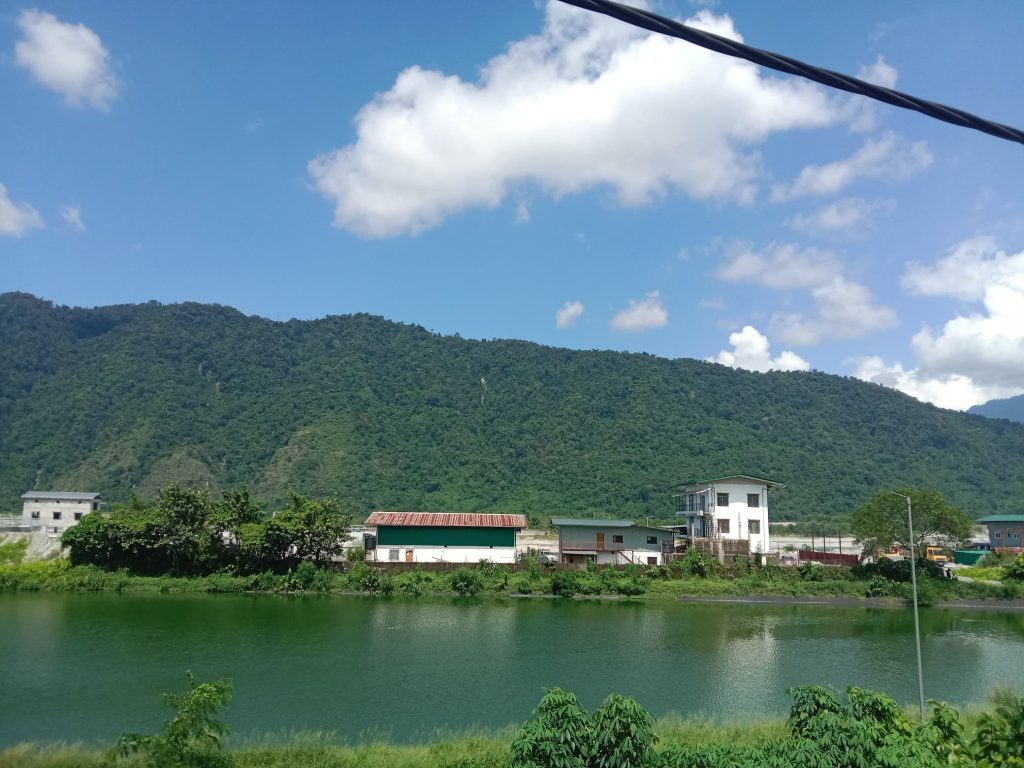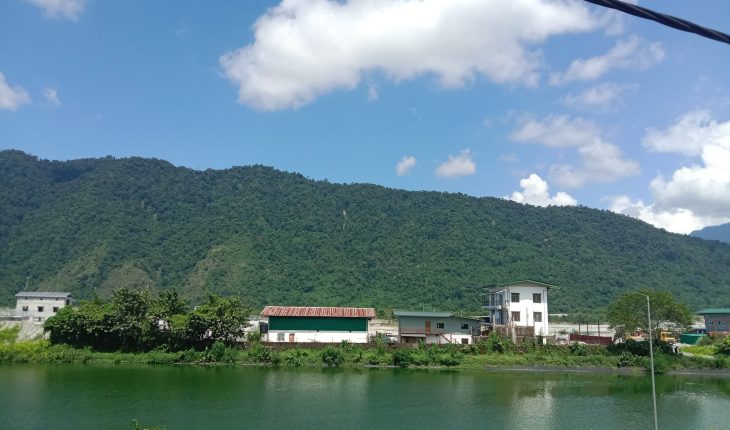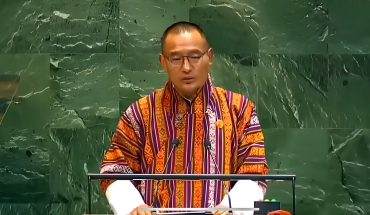
DAWA ZANGMO| Phuentsholing
An ongoing sewage development project in Phuentsholing Township is set to transform the town’s sanitation system, improve public health, and address long-standing waste management challenges in Bhutan’s busiest commercial hub.
The project, initiated under the government’s urban infrastructure development program, is designed to modernize Phuentsholing’s aging sewage network.
Authorities say the works will provide more efficient wastewater collection and treatment facilities for the growing population, which has outpaced the capacity of existing systems.
Officials from the Phuentsholing Thromde confirmed that the project is being carried out with financial support from the Asian Development Bank (ADB) and technical assistance from relevant government agencies.
The initiative is part of a broader plan to strengthen essential services in southern border towns, where rapid population growth and business activity have led to mounting pressure on basic infrastructure.
According to project engineers, the development includes the construction of new sewage pipelines, pumping stations, and a modern treatment plant capable of serving thousands of households and businesses.
Once complete, the system will significantly reduce wastewater discharge into the Amochhu River, helping protect water resources and the environment.
“This project is critical for ensuring that Phuentsholing develops sustainably,” Project Manager from the DHI said. “It will not only improve hygiene and public health but also create a cleaner, safer urban environment for residents and visitors.”
The project is expected to directly benefit over 20,000 residents in the town, while also supporting the commercial establishments that rely on adequate sanitation infrastructure.
Public health experts have long warned that without proper sewage management, urban areas face higher risks of waterborne diseases, especially during the monsoon season when flooding exacerbates contamination.
While construction works have brought temporary disruptions, local residents are hopeful about the long-term benefits.
Karma Dema, a resident of the Kabreytar area, said the project is a long-awaited improvement for the community.
“For years, we have faced frequent drainage issues, especially during heavy rains. Water from blocked drains would overflow onto the streets, creating unhygienic conditions. If this new system can solve those problems, it will greatly improve our quality of life,” she said.
Business owners in the commercial heart of Phuentsholing also see the development as a much-needed step. Tashi Dorji, who runs a grocery shop in the main town area, noted that poor sanitation has been a recurring concern.
“During summer, the smell from the drains is unbearable, and customers often complain. It does not reflect well for a busy border town like ours, where so many people visit daily. Though the road digging is affecting our sales right now, we believe the investment will pay off in the future,” he said.
For younger residents, the project represents progress toward a healthier living environment. Pema Choden, a college student living near the Amochhu area, emphasized the importance of clean surroundings for the community’s future.
“Phuentsholing is one of the busiest towns, and people from all over Bhutan and across the border come here. With better sewage treatment, the town will be safer and more pleasant. It also shows that we are moving towards modern urban facilities like other developed places,” she said.
The project’s phased implementation is expected to take two years, with completion anticipated by late 2027. Authorities have assured the public that careful planning is in place to minimize disruptions to daily life.
Efforts are being made to coordinate construction works with traffic management and community consultations to reduce inconveniences.
Protecting the Amochhu from untreated waste discharge is expected to have a positive impact not only on the town but also downstream communities dependent on the river’s ecosystem.
Phuentsholing, as Bhutan’s key trading hub and one of the fastest growing towns, faces unique urban challenges due to its location and population density.
Officials stress that modern infrastructure projects such as this sewage system are essential to keep pace with development while safeguarding public health and natural resources.
“This initiative is a milestone for Phuentsholing,” the Project Manager from DHI added. “By upgrading sanitation infrastructure, we are addressing immediate needs while also laying the foundation for long-term resilience against urban health risks.”
As works progress, residents remain watchful but hopeful that the inconveniences they endure today will bring a cleaner, healthier, and more sustainable town in the years to come.





